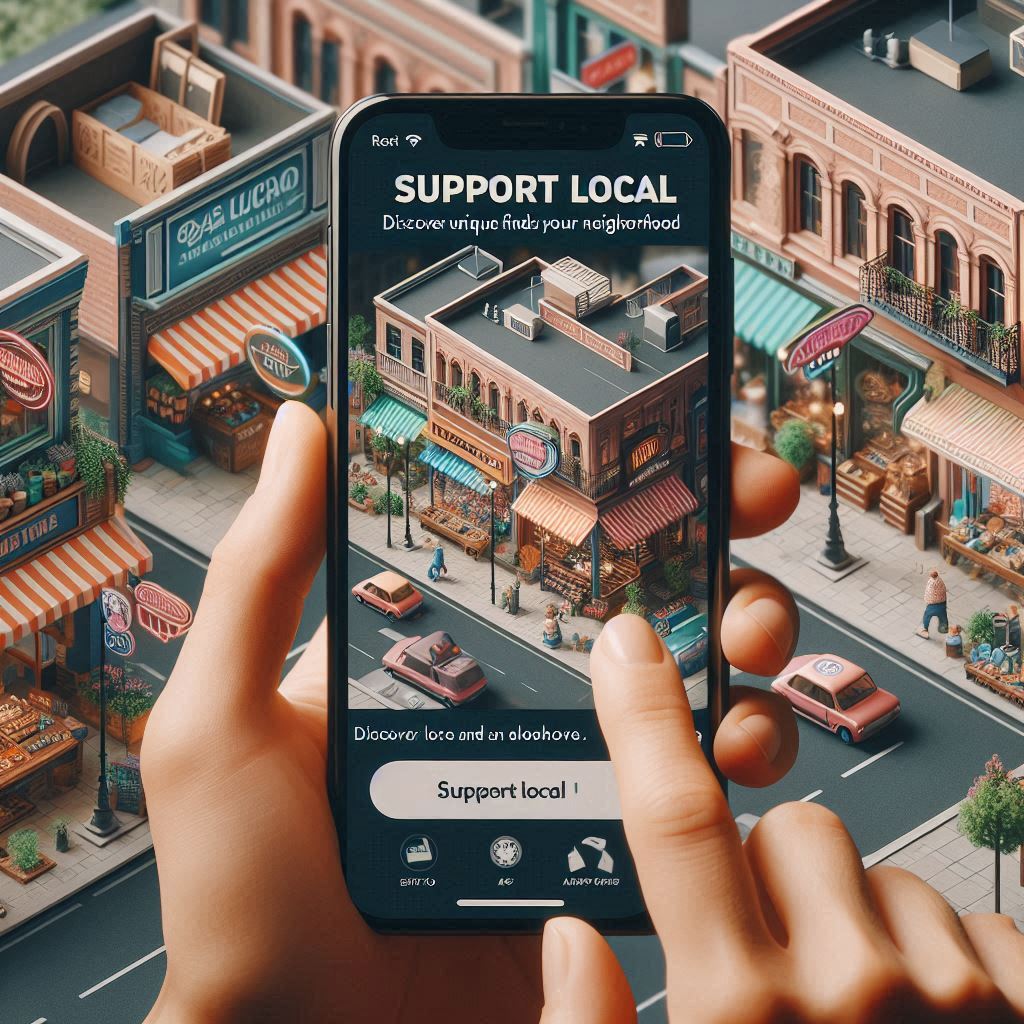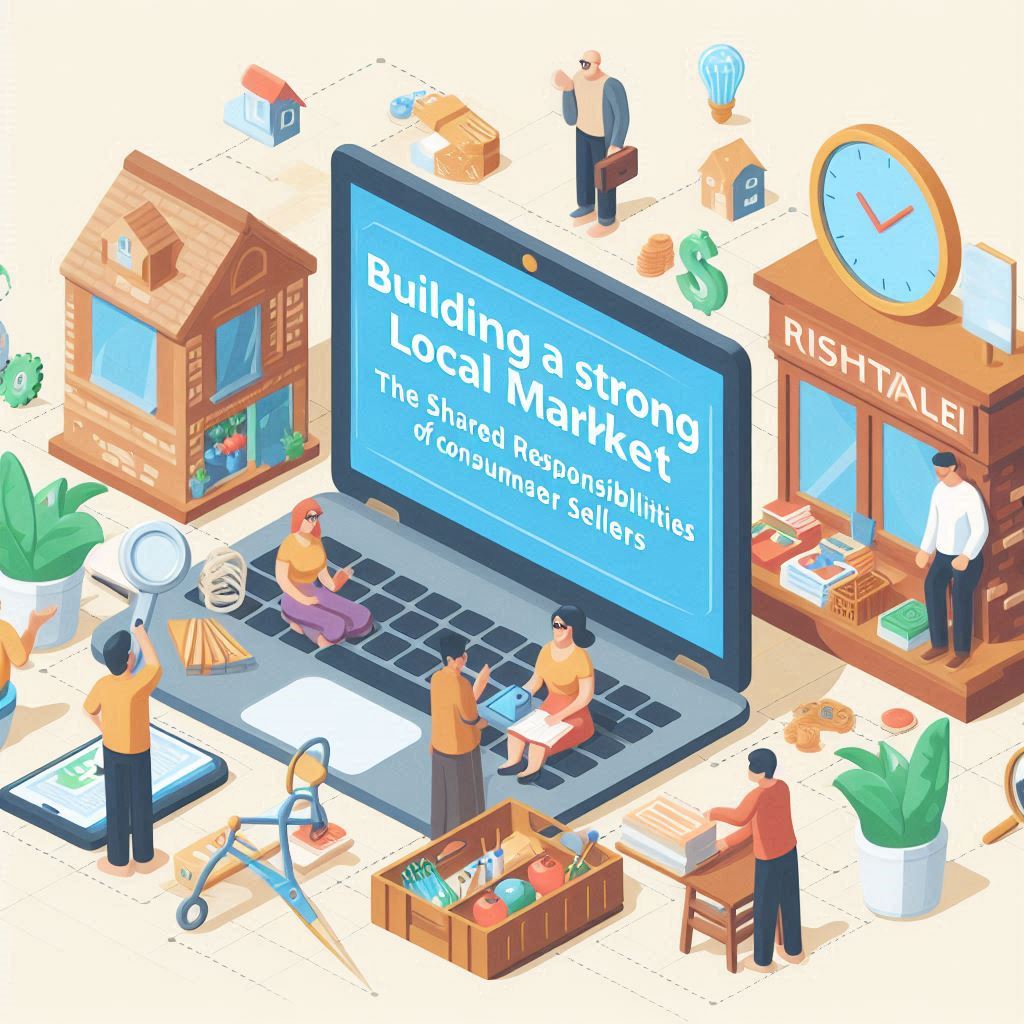Introduction
Local market stores are more than just places to shop; they are vital components of our communities. They provide unique products, create jobs, and promote relationships that strengthen the local economy. This blog explores how these market stores support the community and the importance of community engagement in building successful local businesses.
Why Local Market Stores Play a Vital Role in Supporting the Community
Local market stores contribute significantly to their communities. They offer personalized services that larger chains cannot match, creating a sense of belonging among customers. By sourcing products locally, these stores help keep money within the community, supporting local jobs and initiatives. When people shop at market stores, they are not just buying goods but investing in their community’s future.
How Community Engagement Strengthens Local Businesses
Engaging with the community allows market stores to build customer trust and loyalty. When businesses participate in local events or support charities, they demonstrate their commitment to the community. This involvement promotes a positive reputation and encourages repeat business, as customers prefer to support businesses that care about their well-being.
Promoting Relationships with Local Customers
Creating Personalized Experiences to Build Loyalty
Market stores excel at creating personalized shopping experiences. By remembering customer preferences and offering recommendations, they build strong relationships that encourage loyalty. These personal connections make customers feel valued and appreciated, leading to repeat visits.
Hosting Events and In-Store Promotions to Connect with the Community
Hosting events such as product launches, seasonal sales, or workshops can draw in local customers and create a lively atmosphere. These events not only promote products but also provide opportunities for community members to interact and connect with one another.
Collaborating with Local Producers and Suppliers
Partnering with Local Farmers and Artists to Promote Sustainability
Market stores often collaborate with local farmers and artisans to offer fresh produce and handmade goods. This partnership promotes sustainability by reducing transportation emissions and supporting local economies. Customers appreciate knowing where their food comes from and are more likely to choose market stores that prioritize local sourcing.
Showcasing Local Products to Highlight the Region’s Unique Offerings
By showcasing local products, market stores can highlight the unique offerings of their region. This not only attracts customers interested in supporting local artisans but also enhances the store’s brand identity as a community-focused business.

Supporting Local Causes and Initiatives
Donating to Community Projects and Non-Profit Organizations
Many market stores engage in philanthropy by donating a portion of their profits to local charities or community projects. This generosity helps address social issues within the community and builds goodwill among customers.
Organizing Fundraisers and Charity Drives to Give Back to the Community
Organizing fundraisers or charity drives allows market stores to actively participate in community welfare. These initiatives not only raise funds for important causes but also bring customers together for a common purpose, strengthening community bonds.
Engaging Through Social Media and Online Platforms
Using Social Media to Promote Local Events and Activities
Social media is a powerful tool for market stores to connect with their audience. By promoting local events or sharing stories about community initiatives, these businesses can enhance their visibility and engage customers on a deeper level.
Engaging Customers Online with Community Stories and Successes
Sharing success stories from customers or highlighting positive impacts made through community involvement can resonate well with audiences. These narratives help humanize the brand and promote a sense of pride among customers who support local market stores.
Creating Spaces for Community Interaction
Designing Your Store as a Gathering Place for Local Groups and Workshops
Market stores can serve as gathering places by hosting workshops or meetings for local groups. This not only increases foot traffic but also positions the store as an integral part of the community fabric.
Hosting Pop-Up Markets or Collaborating with Other Local Businesses
Collaborating with other local businesses for pop-up markets can create exciting shopping experiences for customers. These collaborations can introduce new products while promoting a spirit of cooperation among local entrepreneurs.
Educating the Community on Sustainability and Local Economy
Providing Resources on the Benefits of Shopping Locally
A market store can educate customers about the benefits of shopping locally through workshops or informational materials. Understanding how their purchases impact the economy encourages consumers to choose market stores over larger chains.
Offering Workshops on Sustainable Practices and Local Production
Workshops focused on sustainability practices can empower customers to make informed choices about their consumption habits. By providing valuable resources, market stores position themselves as leaders in promoting environmental responsibility within the community.
Building Long-Term Partnerships with the Community
Establishing Ongoing Collaborations with Schools and Local Organizations
Building partnerships with schools or local organizations can create lasting relationships that benefit both parties. These collaborations can lead to joint events or programs that enhance community engagement while promoting the store’s brand.
Engaging with Local Influencers and Leaders to Amplify Your Impact
Market stores can benefit from engaging with local influencers who share similar values. By collaborating on projects or events, these businesses can amplify their impact within the community while reaching new audiences.
Conclusion
In conclusion, local market stores play an essential role in supporting their communities through engagement, collaboration, and education. By promoting relationships, partnering with local producers, supporting causes, utilizing social media effectively, creating interactive spaces, educating consumers, and building long-term partnerships, these businesses not only grow but also contribute significantly to the well-being of their communities. As more people recognize the value of shopping locally at market stores, we can look forward to stronger communities that support one another for years to come.
At Miodeal, we believe in the power of community. By supporting your local market stores, you’re not just making a purchase; you’re investing in your neighborhood’s future. Join us for these vital connections—shop locally today!
FAQs
Why are local market stores important for communities?
Local market stores provide unique products, create jobs, and keep money within the community, which helps support local initiatives and promotes a sense of belonging among residents.
How can local market stores engage with their communities?
They can engage by hosting events, collaborating with local producers, supporting local causes, and using social media to promote community stories and events.
What benefits do local market stores gain from community engagement?
Engaging with the community helps build trust, enhances brand loyalty, and encourages repeat business as customers prefer to support businesses that actively contribute to their community.
How can customers support their local market store?
Customers can support local market stores by shopping there regularly, participating in community events hosted by the stores, and spreading the word about their favorite local businesses.













